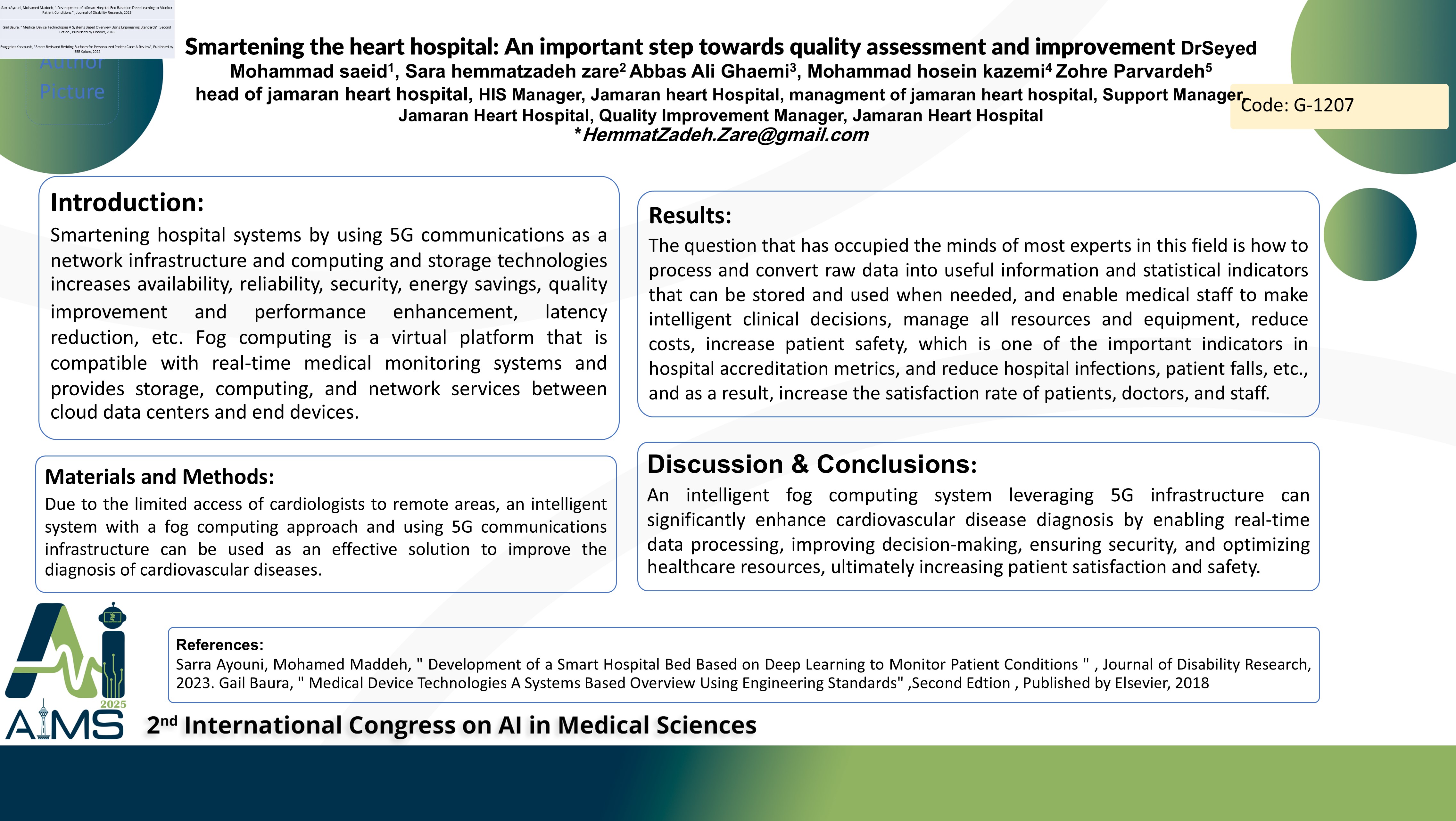Smartening the heart hospital: An important step towards quality assessment and improvement
Code: G-1207
Authors: مهندس سارا همت زاده زارع * ℗, دکتر سیدمحمدسعید غیاثی, آقای عباسعلی قائمی, آقای محمدحسین کاظمی, خانم زهره پرورده
Schedule: Not Scheduled!
Download: Download Poster
Abstract:
Abstract
Background and aims: Smartening hospital systems by using 5G communications as a network infrastructure and computing and storage technologies increases availability, reliability, security, energy savings, quality improvement and performance enhancement, latency reduction, etc. Fog computing is a virtual platform that is compatible with real-time medical monitoring systems and provides storage, computing, and network services between cloud data centers and end devices. Method: Diagnosing cardiovascular diseases through symptoms is a major challenge in the current global conditions and, if not diagnosed in time, may cause mortality. Due to the limited access of cardiologists to remote areas, an intelligent system with a fog computing approach and using 5G communications infrastructure can be used as an effective solution to improve the diagnosis of cardiovascular diseases. Given that in the medical field, data is collected and stored in large dimensions and in large volumes, and on the other hand, the open and distributed structure of fog computing is vulnerable and weak against security threats, the aim of the present study is to review the solutions presented to improve the diagnosis of cardiovascular diseases and address the challenges in smart heart hospitals. Today, many hospitals use hospital information management systems to manage patient or healthcare data. Results: These systems generate a large amount of data including numbers, texts, graphs and images. Unfortunately, this data is rarely used in clinical decision-making. The question that has occupied the minds of most experts in this field is how to process and convert raw data into useful information and statistical indicators that can be stored and used when needed, and enable medical staff to make intelligent clinical decisions, manage all resources and equipment, reduce costs, increase patient safety, which is one of the important indicators in hospital accreditation metrics, and reduce hospital infections, patient falls, etc., and as a result, increase the satisfaction rate of patients, doctors, and staff. Conclusion: An intelligent fog computing system leveraging 5G infrastructure can significantly enhance cardiovascular disease diagnosis by enabling real-time data processing, improving decision-making, ensuring security, and optimizing healthcare resources, ultimately increasing patient satisfaction and safety.
Keywords
Edge Computing, Internet of Health Things
